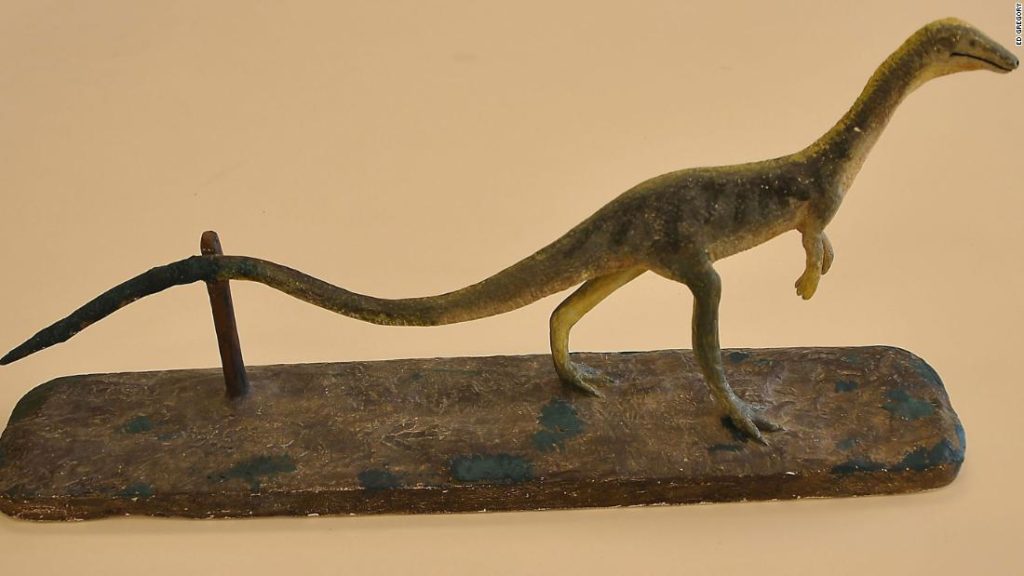There’s already a state fossil (surprisingly enough, dinosaur tracks), but now state Rep. Jack Patrick Lewis has announced plans to propose a bill aimed at adopting a state dinosaur.
He told CNN he has high hopes that the initiative will help kids in Massachusetts learn more about science and prehistory in their area, along with the legislative process.
“I was unprepared for the excitement that this project would generate,” said Lewis, adding that tens of thousands of people have already voted in a poll to choose the dinosaur.
“My hope continues to be that this project will help young people better understand the prehistoric world and career opportunities that might grow out of a childhood interest or a love of science.”
The number changes a bit depending on how the dinos are counted — nine states and DC have official state dinosaurs (Arizona, Arkansas, California, Maryland, Missouri, New Jersey, Oklahoma, Texas, and Wyoming), while six have state fossils that happen to be dinosaurs (Colorado, Montana, New Mexico, South Dakota, Utah and Oklahoma).
According to New Jersey officials, Victorian fossil hobbyist William Parker Foulke hired a crew in 1858 to dig up a clay pit in Haddonfield because he had heard a rumor that giant bones were buried there. Eventually, they found the bones of a duckbilled dinosaur. Dubbed “Haddy,” it was later nominated to become an official New Jersey state symbol by an elementary school class in 1991.
A prehistoric poll
Before Massachusetts citizens can adopt a dinosaur of their own, they are being asked to decide in a poll which of their state’s “oldest constituents” to designate: Podokesaurus holyokensis or Anchisaurus polyzelus.
“Dinosaurs already serve as a gateway to science for many young people,” added McMenamin, who is one of the paleontologists working on the project to adopt a state dinosaur. “As we move forward with naming a state dinosaur, kids will learn the names of dinosaurs that lived here in Massachusetts. This emphasizes the fact that dinosaur bones and tracks exist right under our feet.”
Anchisaurus polyzelus was an herbivore. Its bones were first discovered in 1855 in Springfield, Massachusetts, but because these dinosaurs were so small (only 60 to 75 pounds) their bones were initially mistaken for human remains.
“Ultimately, if this exploration of a ‘state dinosaur’ helps even one person make contact with their local elected officials, and if that contact is helpful down the road, this would have been all worth it,” Lewis told CNN.
You may also like
-
UK coronavirus variant has been reported in 86 countries, WHO says
-
NASA technology can help save whale sharks says Australian marine biologist and ECOCEAN founder, Brad Norman
-
California Twentynine Palms: Explosives are missing from the nation’s largest Marine Corps base and an investigation is underway
-
Trump unhappy with his impeachment attorney’s performance, sources say
-
Lunar New Year 2021: Ushering in the Year of the Ox

